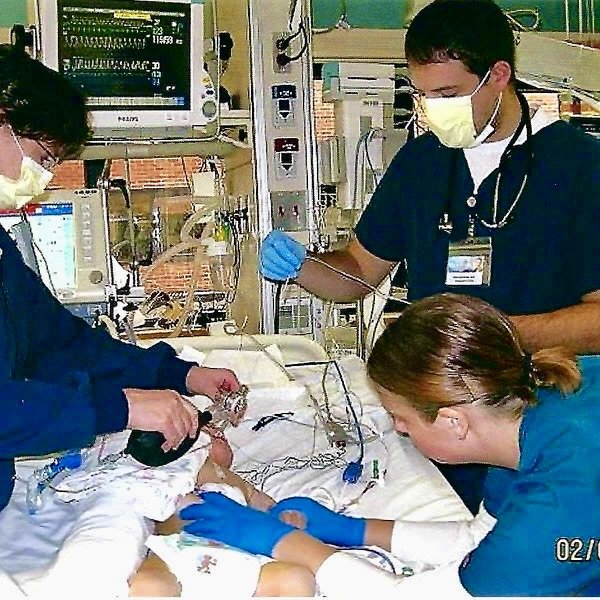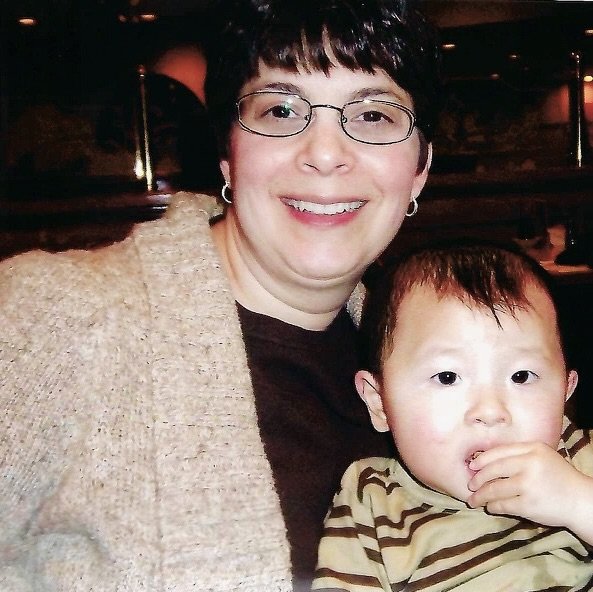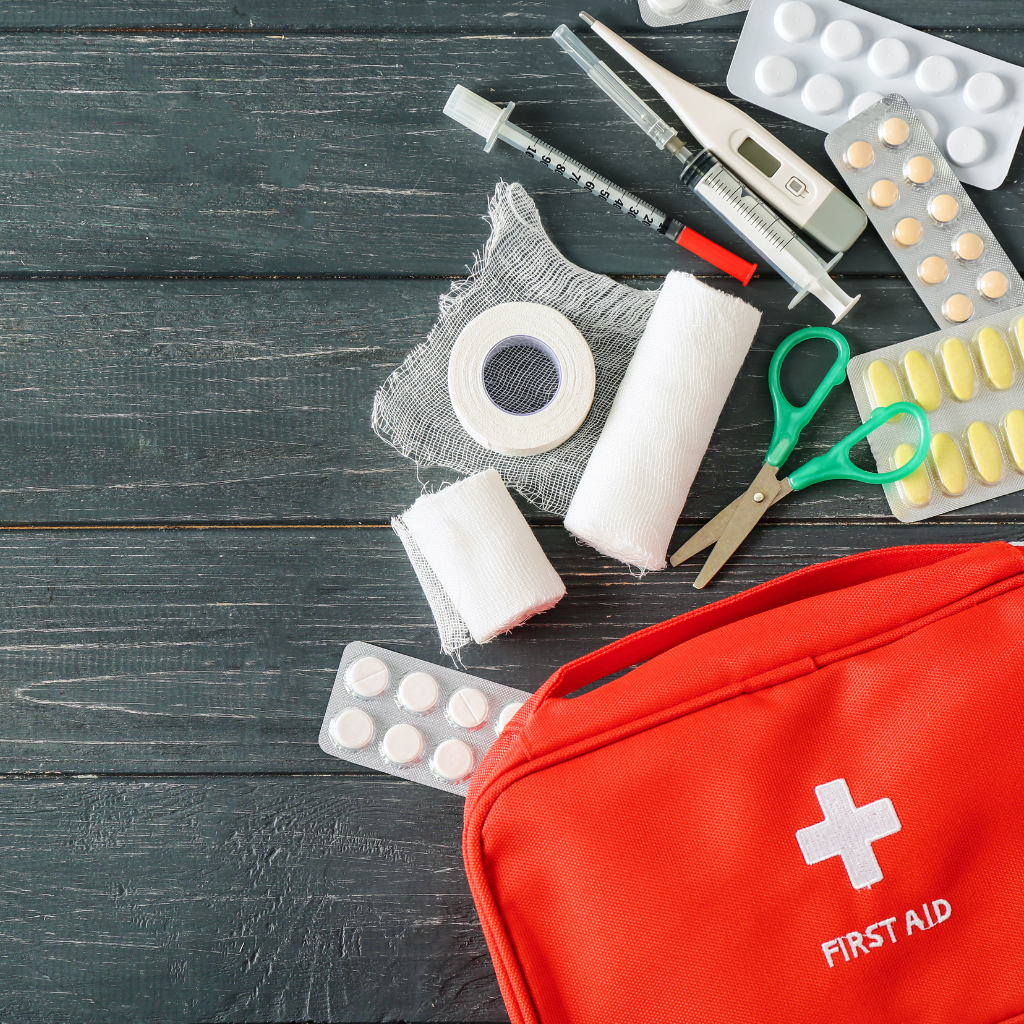A Baby, A Bond, and Two Lives Saved
From China to Minnesota, A Bond Forged in Love: How One Child Taught Me the Depths of the Human Heart
How could a woman, longing for motherhood yet plagued by self-doubt, find strength and love in the most unexpected place? My answer came from a 14-month-old baby from China, who would teach me more about love and courage than I ever imagined possible.
A mother, driven by desperation and societal constraints, made a heartbreaking decision that would forever alter two lives. Her choice would also change my life. I longed to be a mother but feared that I was inadequate; I worried I couldn’t provide enough love or nurturing. I was about to learn a powerful lesson about the depths of the human heart.
Every year, on Gengwei's birthday, I am reminded of our incredible journey together. As he turned 14 last week, I reflected on his profound impact on my life and the extraordinary circumstances that brought us together.
Gengwei, a couple of weeks after surgery. Photo by Meagan Justus
I first met Gengwei when he arrived in the U.S. from China as an orphaned baby in need of life-saving heart surgery. His beginning life story was heart-wrenching: his father was murdered while his Mother was pregnant with him. After his birth, it was discovered he was very ill and was not expected to survive. His Mother made the unimaginable decision to abandon him. She felt she had no choice in her village, where families were restricted to having only two children. Even now, I struggle to comprehend the pain she endured, believing her son would not survive, and the agony of the choices she faced. His grandparents tried to help, but coming from a poor village, they lacked resources. They were grateful for his chance at surgery in America, but their hope was tempered by reality. How does one send their baby grandson alone to another country, clinging to a thin thread of hope?
“What seemed like stubborn resistance was a baby staying true to the familiar comforts of his first home.”
When Gengwei arrived at the airport, escorted by an American Airlines worker, time seemed to stand still. My heart cracked open at the sight of this tiny traveler, his dark eyes instantly locking with mine. Here was a baby who had endured more in his fourteen months than most face in a lifetime—a serious heart condition, a long international flight, and now a strange new world where even the language was foreign. I braced myself for tears and terror, but what I saw instead shook me to my core: a mostly content baby, offering occasional smiles between brief moments of fussiness. His easy acceptance of me wasn't the blessing it appeared; it was a window into a deeper wound. This little one, who had spent most of his life in hospitals, had never known the constant presence of a loving caregiver. While his adaptability made our initial connection smoother, the reason behind it haunted me—no child should be so accustomed to strangers.
His first 24 hours in the States were a crash course in love and adaptation. His nearly empty formula can bore instructions only in Chinese, leaving me uncertain about switching to American brands. Worse, I couldn't get him to drink at all. I bought every type of bottle and sippy cup I could find, but he refused them all, turning his head away in frustration. Desperation led to one last attempt—a cup with a pop-up straw. To my amazement, he took to it immediately, drinking with enthusiasm. The mystery was solved when an interpreter later explained that Gengwei's village was noodle-based; he had already mastered the art of slurping noodles. This simple cultural connection explained everything—of course a straw would feel natural to him! What seemed like stubborn resistance was a baby staying true to the familiar comforts of his first home.
“His instant readiness to accept me as a new caregiver revealed a painful truth: having spent most of his life in hospitals, he had never known a consistent caregiver. While this made my role easier, it broke my heart to realize he hadn’t formed secure attachments.”
His tiny travel bag told its own story of hardship—just two outfits that carried an overwhelming, industrial-like odor reminiscent of kerosene. The smell was so potent it permeated our entire house, lingering stubbornly even after multiple washes. The clothing itself spoke of a different world: simple jumpsuits with open flaps that exposed his skin where American onesies would have snaps—wholly inadequate for Minnesota's brutal January winds. I reached out to my church community, and within hours, friends arrived with bags of warm clothing, introducing Gengwei to his first Lightning McQueen t-shirt and Thomas the Train pajamas. These small gestures of kindness wrapped him in both warmth and welcome. A community coming together to provide love and assistance.
Our first evening stands out vividly. My friend Debra suggested a bath, believing it would help him sleep. I hesitated, suspecting that growing up in a hut with a dirt floor or confined to hospital beds meant he'd never experienced a proper bath or at least a typical U.S. version of one. His terrified screams confirmed my fears, his heart racing and breathing retracted. I spent hours rocking him to sleep that night, carefully feeding him airline-provided Pedialyte, praying it would keep him hydrated until morning.
The days before surgery revealed both his fragility and strength. His heart condition was severe—a large hole left it so enlarged it dominated half of his chest cavity. He struggled with discomfort, especially after eating, so I learned to hold him in ways that eased his pain. Despite being unable to crawl or sit properly, his spirit remained undiminished.
Surgery day began in darkness, arriving at the hospital before dawn. In those quiet morning hours, we found a moment of joy watching Gengwei bounce in a hospital jumper, his tiny fingers tracing bright alphabet letters. Before they wheeled his little crib away, we gathered to pray over him—a moment that would sustain me through the agonizing hours ahead. Each tick of the clock during surgery felt eternal; I paced the waiting room, alternating between hope and fear, desperate for any news of his progress. When the doctor finally emerged with her bright smile, her words washed over me like a blessing: the surgery was a success. Gengwei would go on to live a normal, healthy life—not even needing medication. But the most challenging part was yet to come. For the next 24 to 48 hours, hospital protocol meant no one could hold him. Standing by his bed, watching his small body wrapped in tubes and bandages, my arms ached with the primal need to comfort him. Those hours of enforced distance felt like an eternity. When I was finally allowed to be the first to hold him, every moment became precious. I cherished our quiet time together—feeding him Goldfish crackers, rocking him gently, singing his favorite "Five Little Monkeys" repeatedly, and reading books. His resilience amazed me; he came off the ventilator just six to eight hours post-surgery. In those tender days of recovery, I witnessed a beautiful transformation—this was Gengwei's true awakening to play, joy, and life itself.
First time being being held after surgery and first introduction to Goldfish crackers!
“In those tender days of recovery, I witnessed a beautiful transformation—this was Gengwei’s true awakening to play, to joy, to life itself.”
Four days after surgery, we returned home, and I witnessed his gradual but remarkable transformation. A new spark had ignited in him even before his surgical wounds had fully healed. He showed genuine interest in playing and engaging with his world for the first time. During those initial weeks, I tried to follow the doctor's orders to limit his movements, but Gengwei had other plans. His newfound energy and curiosity proved nearly impossible to contain. After the first week, he began army-crawling across the floor, his determination to explore overriding any attempts to keep him still. My heart swelled, watching him discover this level of vitality he'd never known before. Each milestone felt like a miracle: first, the tentative crawling, then more confident movements, and finally, about six weeks post-surgery, the magical moment when he began pulling himself up on furniture, testing his legs with wobbly determination. This wasn't just physical healing—it was Gengwei's awakening to a world that had previously been beyond his reach. Watching him transform from a sick, passive baby into this adventurous explorer made my heart grow tenfold.
He became my Valentine that year, and we marked the occasion at a local Chinese restaurant—with a tasty noodle dish, of course! Those precious weeks taught me lessons I never expected to learn. Through caring for Gengwei, I discovered that despite my fears—born from my own mother's inability to put her children first—I possessed deep reserves of maternal love. Each time I put his needs before my own, I healed a little piece of my past. I found I could love freely, deeply, and instinctively in ways I'd doubted possible.
6 weeks after surgery having dinner at our favorite Chinese restaurant
Beyond my personal transformation, my thoughts often turned to his mother. I could only imagine the weight of her impossible choice—abandoning her desperately ill son, believing he would die. While caring for Gengwei, I often thought, "This is for you too. You made an agonizing decision out of desperation, but through your parents, you'll know your son not only survived but thrived." I held onto hope that when she learned of his successful surgery and his chance at a normal, healthy life, she might find her way back to him. This possibility was always in my heart—it was why adoption wasn't an option for me, as legally, she could reclaim him. What a profound privilege it was to be part of his journey to health, to be a bridge between his past and whatever future awaited him. When it was time for him to return to China, I sent him with a photo album documenting every step of his journey—from his arrival through surgery and recovery. I included his surgery photos, too, wanting his family, especially his mother if she returned, to understand the full scope of his courage and hoping that as he grew, he would know his story of resilience and triumph. Gengwei taught me that my heart's capacity far exceeded my fears. He will forever hold a piece of my heart—a bond formed not through blood but through the profound experience of nurturing him to health. This journey also showed me the incredible power of community support, leading me to wonder: What might our world look like if we extended this same compassion to everyone? What if every person had access to the care they needed? What if every parent's impossible choice could be met with understanding and support?
Happy 14th birthday, Gengwei. You will always be loved—not just by me, but by all those whose lives you touched during your brave journey. You taught us all about courage, resilience, and the boundless capacity of the human heart.












